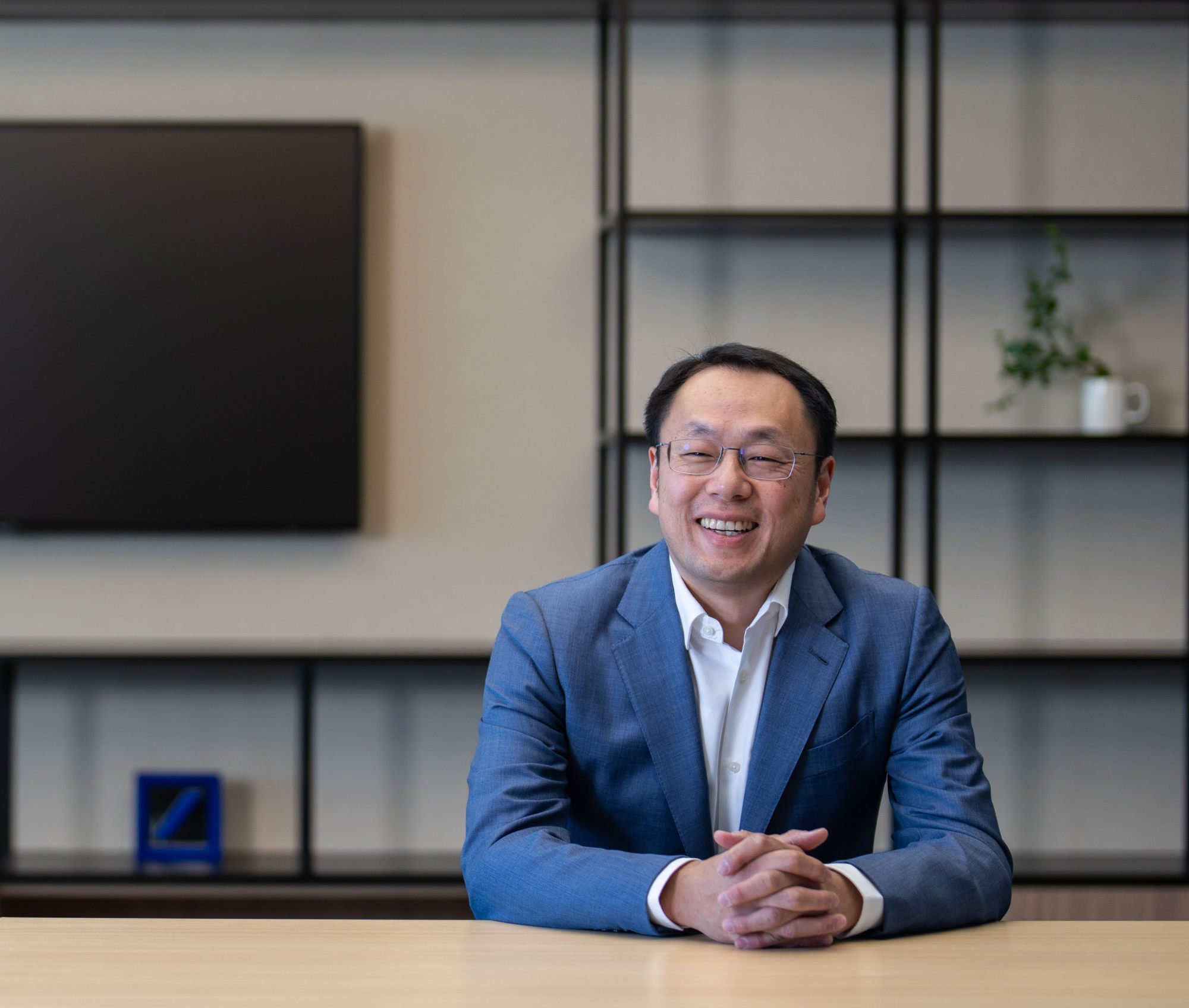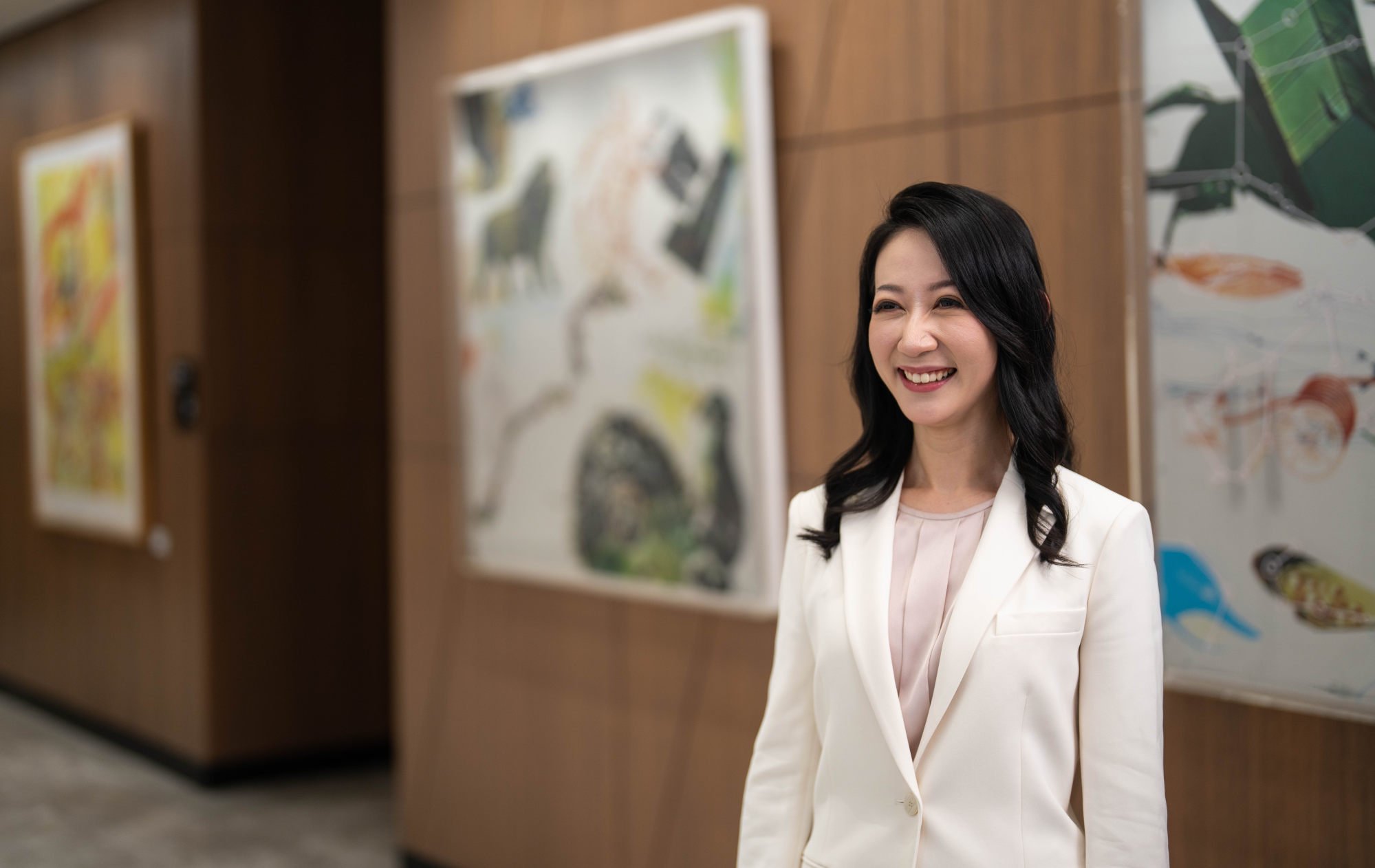
Why people are at the heart of Deutsche Bank’s success in China and Asia-Pacific
- Germany’s leading bank with strong company culture playing a key role in attracting talent and expanding coverage in the region
- Deutsche Bank aims to become employer of choice with a people-first approach that drives its diversity and inclusion agenda to tackle industry biases
Many organisations around the world are experiencing a period of rapid transformation as a result of economic, environmental and social pressures, challenging traditional business models and driving a reinvention of the workplace environment.
A PwC survey last year of more than 19,000 employees from organisations across Asia revealed that employers and employees think that to remain relevant, there is a need to transform the workplace into one in which people are motivated, engaged and committed. The report suggests that 49 per cent of employees believe their employers will go out of business within 10 years if they do not evolve; this figure rises to 52 per cent among Gen Z, or digital natives.
Yet one organisation is making its claim as a benchmark for employers of the future, with a people-first culture that champions an inclusive workforce, professional development and team spirit. Deutsche Bank, which has had a presence in Hong Kong for 66 years and mainland China for more than 150, is reinforcing its status as a global bank. Its net revenue reached €28.9 billion (US$31.3 billion) last year, a 6 per cent increase from 2022, indicating that its “people-first” culture is paying dividends.
The bank’s positioning comes at a time when it is mapping out a sustainable future: one where growth is balanced with a “culture of care” that values not only performance but also the autonomy, mental health and flexibility of its employees. This in-house culture aims to provide an open, friendly environment and overcome some long-held prejudices in the banking sector, ultimately attracting talent and encouraging loyalty.

The bank has a raft of initiatives that support the longer-term needs of employees through significant personal milestones and professional development. They include extending parental leave benefits to 26 weeks for primary carers and 16 weeks for non-primary carers in Asia-Pacific, compared to the statutory 14 weeks and five days respectively in Hong Kong. They also include a global “35 by 25” initiative to have 35 per cent of executive positions filled by women by 2025 – a target already exceeded in Hong Kong and across Asia-Pacific.
The region is a key focus area for Deutsche Bank: it is using its position in Asia as a global bank with European roots as it looks to expand across mainland China and beyond, putting its people-centric culture at the core of its plans.
“Obviously, our focus here in Hong Kong is to cover our regional hub, but at the same time it’s also a very important hub for our Greater China clients and beyond,” says Joe Lai, chairman of origination and advisory Asia, and CEO, Deutsche Bank Hong Kong. “We are seeing the increasing importance of Europe to a lot of our Greater China clients who are looking to add exposure in Europe both from an investment and business expansion standpoint. Our strong presence in Europe puts us in a very good position to support our clients for their investment and business expansion needs” he says. “We have a very open culture and it’s always a team approach that helps us to maintain connectivity with our clients throughout the different cycles of their company and the economy.”

This collaborative approach to serving clients circles back to the bank’s “people-first” culture, which, for example, encourages cross-collaboration and internal mobility across different markets and different areas of business to build teamwork and help junior talent flourish.
“All of us are human beings who want to work in an environment where everybody can come in with full commitment,” says Kanas Chan, managing director and head of wealth management, North Asia, Deutsche Bank Private Bank. “An important element is to help staff build a commitment to long-term loyalty; the number one thing is to provide an environment of teamwork.
“To deliver solutions to clients – this is very important to our growth, and we create a strong work culture for people to collaborate. The long-term relationship with clients enables us to continue to grow with them from one generation to the next. Clients trust that we are stable, and this is very important for expansion in the region,” Chan says.

In addition to initiatives that support the personal and professional needs of staff, Deutsche Bank is championing diversity to build a truly inclusive workforce that goes beyond issues of gender equality – a concept that is still not fully understood in many industries including the banking sector, says Jackie Qu, vice-president, origination and advisory, Deutsche Bank.
The bank has working teams in place to address and ultimately minimise the personal challenges some employees face around diversity, equality and inclusion (DE&I). The aim is to empower staff, reflecting a wider acknowledgment that organisations need to align their culture and values to their workforce to remain relevant in the future. The PwC survey also revealed that just half of the respondents working in different organisations across Asia-Pacific felt comfortable revealing their true selves at work, suggesting that a workplace fostering a sense of belonging generates better performance and greater loyalty from employees.
“When we mention workplace diversity, everyone talks about gender, but we should be broader and much more open to that concept,” Qu says, who is using her position in the male-dominated field of investment banking to advocate for change for people of different backgrounds. Many of the bank’s staff volunteer to participate in employee resource groups, which play an important role in supporting the bank’s diversity agenda. The groups support individuals as they progress through their careers, and aim to nurture inclusivity through dedicated in-house events such as speed networking and DE&I awareness sessions, as well as actively supporting community events such as the Hong Kong Lesbian and Gay Film Festival.

Qu says diversity and inclusion are crucial elements of Deutsche Bank’s work culture, which takes a top-down, bottom-up approach to push initiatives across platforms and lead by example to achieve the bank’s goals. “We have a lot of senior staff participating and that really shows the effectiveness of how we promote diversity and inclusion in our workplace. The mindset is very open about the issues.”
The initiatives are part of Deutsche Bank’s global agenda to eradicate bias and optimise opportunities that a truly diverse mix of talent could bring to its future.
As an active recruitment champion for junior talent, Qu is an advocate for Deutsche Bank’s ability to deliver on its “culture of care”, resulting in a stronger workplace and happier teams. “If there’s a tangible goal, we put that into action when we’re recruiting,” she says. “Our community support group is powerful and inspiring. People are passionate about this topic and we need to be the voice on the floor to achieve our goals.”

